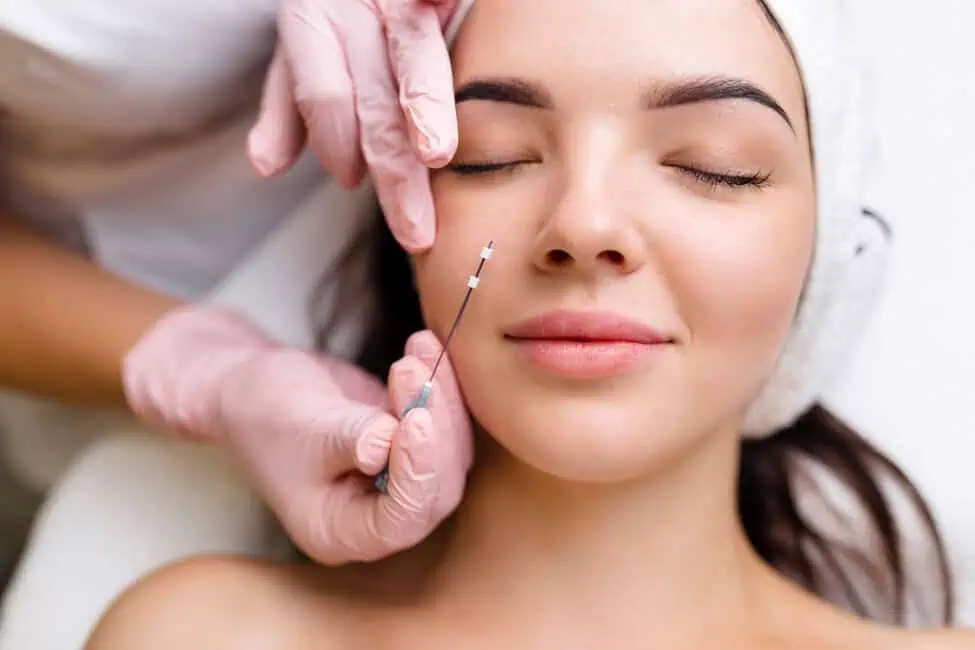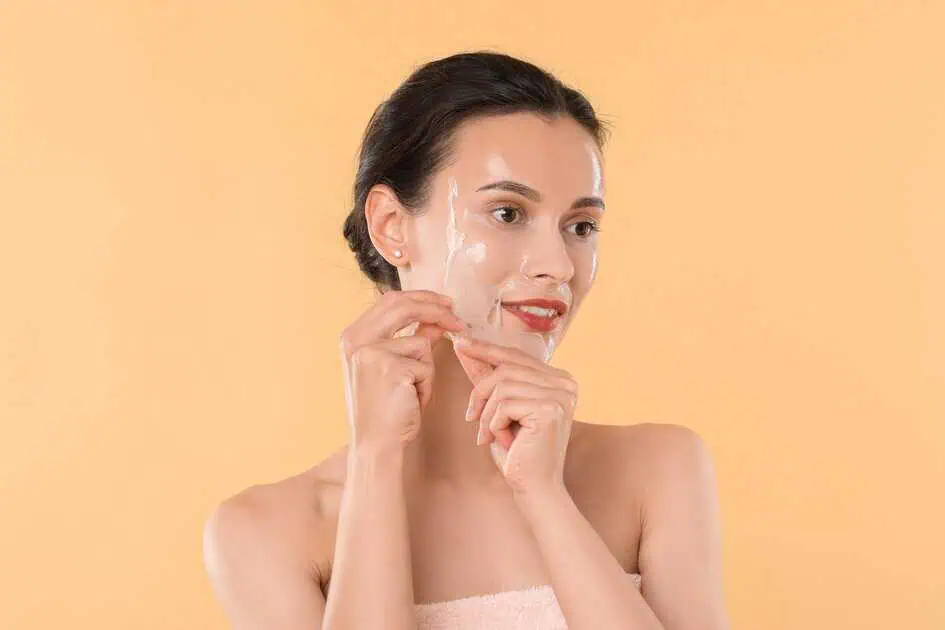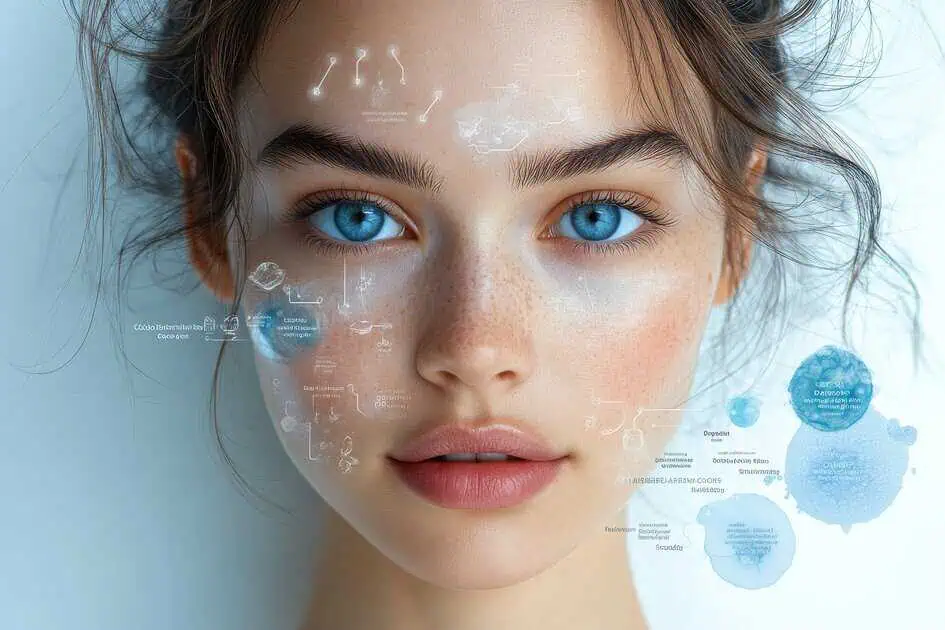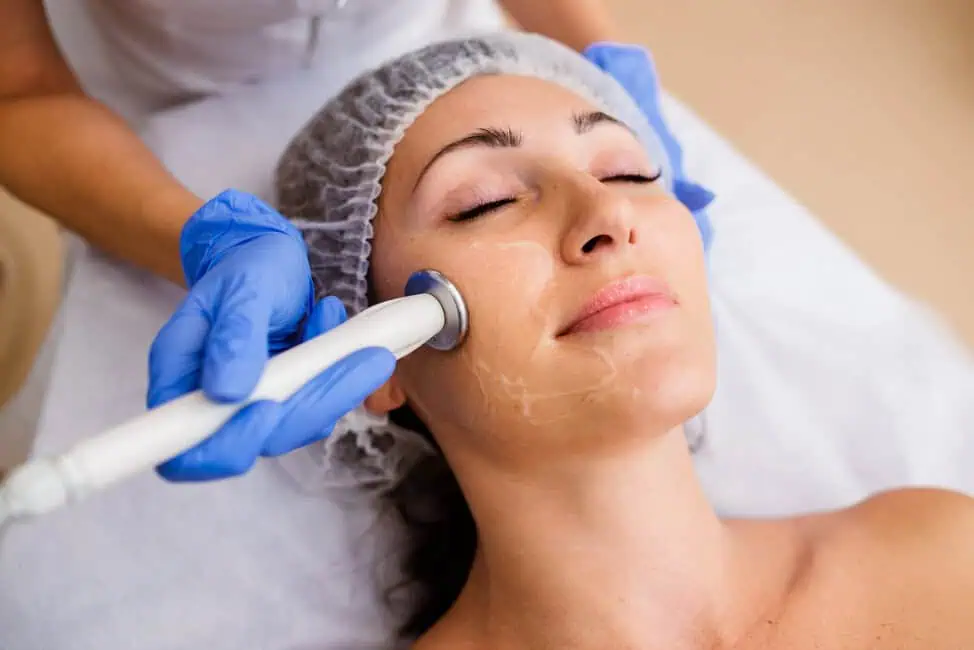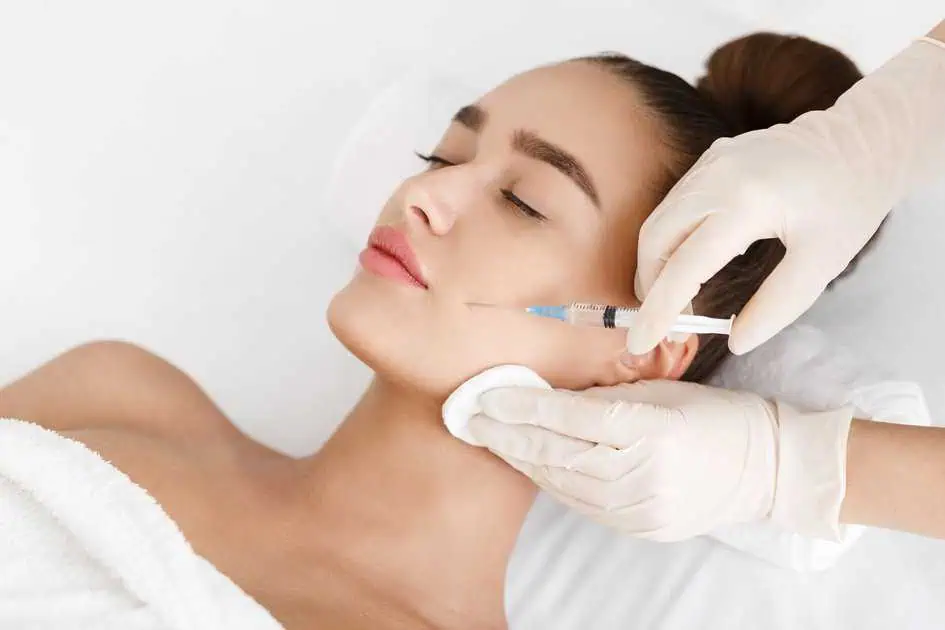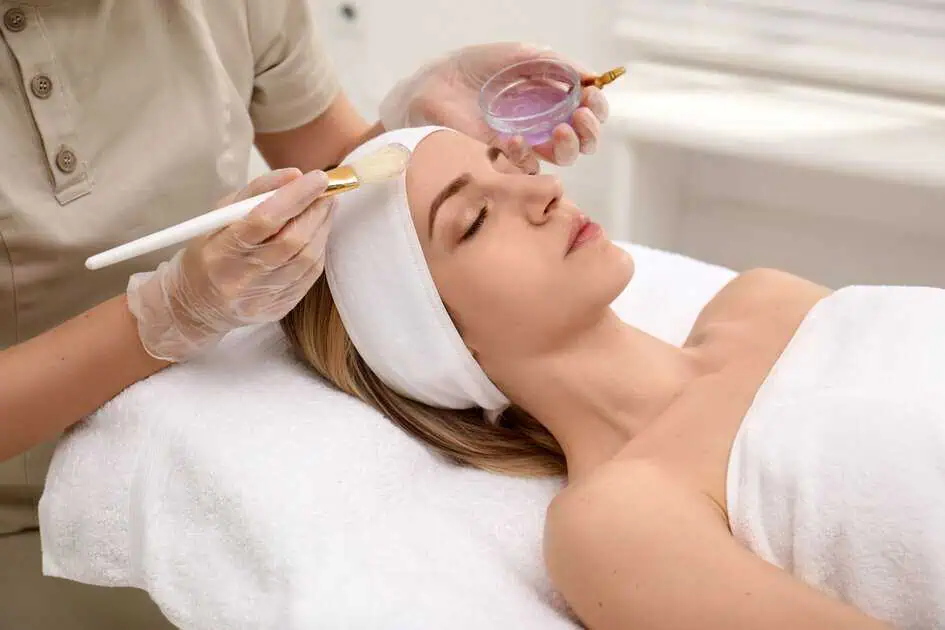Do wrinkles, acne scars, and dark spots sound familiar to you? Despite our best efforts, they do occur, and once they do, we are in a state of terror. We have looked everywhere, hoping to finally discover that “magic” therapy that can eliminate the skin’s textural imperfections and more. Our search has included everything from beauty products that promise to heal age spots to countless web searches.
The good news is that there are solutions available. Chemical peels and laser treatments are two types of skin resurfacing techniques that exfoliate damaged areas of the skin to make room for new skin to grow in their place. What is the final result? Skin that is more refined and invigorated. It has never been simpler to tackle your problem areas, but if you are unfamiliar with the field of skin resurfacing, you may find the process to be intimidating. So, let’s learn more about it now and see which treatment is best for you.
The Distinctive Characteristics of Chemical Peels in Contrast to Laser Treatments
Resurfacing techniques on the skin, such as chemical peels and laser treatments, exfoliate the top layer of skin to make way for the formation of new skin. Both procedures are frequently utilized to lessen the visibility of acne scars and discoloration, minimize the appearance of wrinkles and fine lines, and repair sun exposure issues like age spots.
Chemical peels and laser treatments are distinguished from one another, first and foremost, by the method of therapy that is utilized. Removing the skin by the first method involves employing chemical agents, while the second approach depends on laser technology.
Chemical peels are a method of treating the skin’s surface layer that involves the application of acid solutions of varied strengths. Peels can be classified as either superficial, medium, or deep, depending on their depth.
Chemical peels that are only superficially applied are very moderate and only use weak acids to perform a little skin exfoliation. Peels of this depth are considered more invasive because they reach both the middle and the outer layers of the skin. The most effective type of chemical peel is a deep chemical peel, which uses potent chemicals to penetrate the complexion and exfoliate the skin’s damaged cells.
Beams of light are directed at the skin during laser resurfacing procedures, which causes the skin to be ablated layer by layer. According to research conducted by the American Society of Plastic Surgeons in 2017, laser treatment is generally more costly than chemical peels since it facilitates a more accurate removal process.
Lasers can be either ablative or non-ablative, depending on their intended use. Ablative lasers have a higher power level, but they produce the best results due to their ability to vaporize the skin. Lasers that are non-ablative heat the skin rather than destroying it. It is important to remember that since non-ablative lasers are not as intense as ablative lasers, it may be necessary to undergo numerous sessions to get the desired outcomes.
The two treatments are also distinct concerning the client’s skin tone. Chemical peels are an excellent treatment for hyperpigmentation, and the American Academy of Dermatology reports that those with darker skin tones benefit the most from these methods.
Chemical peels involve the application of acid solutions to the skin to encourage the creation of collagen. These solutions also contain antioxidants that can more effectively enter darker skin and correct discoloration.
Who Would Make a Qualified Candidate?
You are a suitable candidate for either chemical peels or laser therapy if you want to eliminate acne and pimple scars, revitalize your skin, or reverse sun exposure results. Chemical peels can also repair the effects of sun damage. Your healthcare practitioner will guide you through the process of selecting the most appropriate solution for your skin issue.
Before you may undergo a peel or laser treatment, you need to get rid of any active skin infections, open wounds, cold sores, or acne outbreaks that you may be experiencing.
It is possible that you will not be able to receive treatment if you are pregnant, have keloid scarring, or are using certain drugs.
Is It Safe to Use Them?
When carried out by appropriately trained and certified medical personnel, chemical peels and laser treatments are entirely risk-free. Your commitment to the pre-treatment and post-treatment maintenance routines prescribed by your healthcare professional is an additional factor contributing to the overall safety of the process.
Some procedures, including as deep peels, are more intrusive than others in the therapy process. Your healthcare professional will offer you all of the facts regarding the possible hazards involved so that you can make a well-informed decision.
Which Is Better for You: a Chemical Peel or a Laser Treatment?
Although the processes are distinct, chemical peels and laser resurfacing treatments both achieve results that are comparable to one another. Depending on your skin condition, one of these options may be preferable to the other. You will determine this for yourself during your appointment with your healthcare professional.
Chemical peels are typically more effective for people with darker skin, whereas laser therapy is more beneficial for patients with deep wrinkles or scars. Sometimes, dermatologists will prescribe combining these two treatments to achieve the greatest possible outcomes.
Your choice of therapy will also be affected by your goals for your skin, your available budget, and the amount of time you can devote to healing.
Chemical peels and laser therapy are both highly efficient treatments for damaged skin, and both of these procedures will leave you with a complexion that appears to have been improved by the passage of time.
Consider the benefits and drawbacks of each treatment, and then discuss your options with a reputable medical practitioner, such as those found at Alli B + CO, to find out which one is the most effective in reversing the effects of aging and restoring a more youthful glow.



